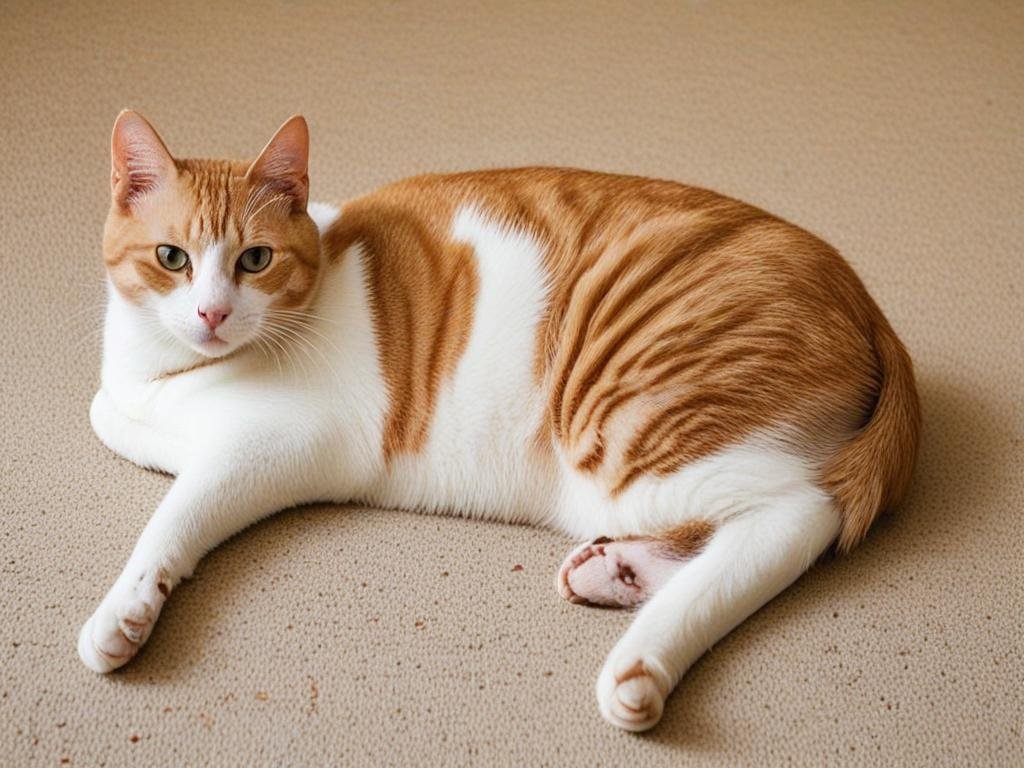Pregnancy in cats, also known as the queen’s gestation period, is an exciting yet delicate time for both your feline friend and you as the pet owner. During this period, your cat will require extra attention, care, and understanding to ensure both her and her kittens’ well-being. This guide will walk you through the special care steps needed to provide your pregnant cat with the best possible experience.
If you need vet appointment through us, please scroll to the bottom and fill up the form!
Signs of Pregnancy in Cats
Before diving into the care steps, it’s crucial to recognize whether your cat is pregnant. A cat’s pregnancy typically lasts around 63 to 65 days. Here are some early signs of pregnancy:
- Changes in appetite: Pregnant cats often experience increased hunger as they need more nutrients for themselves and their developing kittens.
- Behavioral changes: Pregnant cats may become more affectionate, seek comfort, and desire more attention.
- Nipple changes: The nipples may appear darker and slightly enlarged as the pregnancy progresses.
- Abdominal swelling: After about three weeks, you’ll notice her abdomen expanding due to the growing kittens.
Once you observe these signs, it’s time to provide your cat with the special care she deserves.
1. Proper Nutrition for a Pregnant Cat
Nutrition is the cornerstone of a healthy pregnancy. Your pregnant cat will require extra calories and nutrients to support her growing kittens. Here’s how to manage her diet:
- High-quality kitten food: As soon as you confirm the pregnancy, transition her to high-quality kitten food that’s rich in protein, fat, and essential nutrients. Kitten food is designed to provide the extra nutrition she needs.
- Small, frequent meals: As your cat’s abdomen expands, her ability to eat large meals will decrease. Offering her smaller, more frequent meals throughout the day can help ensure she’s getting enough food.
- Fresh water: Ensure your cat has access to fresh water at all times. Dehydration can lead to complications during pregnancy.
2. Regular Veterinary Checkups
It’s crucial to take your cat for a vet checkup once you confirm she’s pregnant. Your vet will assess her health and ensure there are no underlying issues that could affect the pregnancy. During the checkup:
- Ultrasound or X-ray: Your vet might conduct an ultrasound or X-ray to determine the number of kittens she’s carrying.
- Deworming and vaccinations: If your cat needs vaccinations or deworming, the vet can provide them at specific points during pregnancy, ensuring that it’s safe for both her and the kittens.
- Advice on supplements: Your vet might recommend supplements, like folic acid, to support a healthy pregnancy.
3. Comfortable and Quiet Space
As your cat’s due date approaches, she’ll instinctively look for a safe, quiet place to give birth. You can assist her by creating a comfortable nesting area. Here’s how:
- Set up a birthing box: Provide a low-sided box or a soft, cozy space with towels or blankets where she can feel safe. Make sure the area is warm and private, away from other pets or household disturbances.
- Introduce the area early: Set up the birthing space a few weeks before her due date so she can get accustomed to it.
4. Monitor Her Behavior
Pay close attention to your cat’s behavior during pregnancy. Most cats will continue their usual routines, but as they get closer to giving birth, their behavior may change:
- Increased rest: Pregnant cats often sleep more than usual as they conserve energy for the impending birth.
- Nesting behavior: In the days leading up to labor, your cat will likely become more restless and might start nesting in preparation for delivery.
- Signs of labor: When labor begins, your cat may become more vocal, lick her genitals, and have a decrease in appetite.
If you notice any signs of distress or complications, contact your vet immediately.
5. Gentle Exercise
While pregnant cats should avoid excessive physical activity, gentle exercise can help keep them in good health and prevent weight gain. Allow her to engage in light play but avoid any strenuous activities that could strain her body.
6. Hygiene and Grooming
As your cat’s belly grows, she might have difficulty grooming herself, especially in areas she can no longer reach. You can assist her by:
- Gently brushing her fur: Regular brushing will help reduce shedding, matting, and skin irritation. It’s especially helpful for long-haired cats.
- Wiping her bottom: As her belly expands, she may have trouble cleaning her rear area. Use a damp, soft cloth to help her stay clean.
7. Post-Pregnancy Care for Your Cat and Kittens
Once your cat gives birth, post-pregnancy care is crucial to ensure the health of both the mother and her kittens:
- Monitor feeding: After birth, make sure the kittens are nursing properly. If your cat is having trouble producing milk or seems uninterested in nursing, contact your vet immediately.
- Postpartum checkup: Schedule a postpartum vet checkup for both the mother and kittens to ensure there are no complications.
- Nutritional care: Continue feeding your cat high-quality kitten food while she’s nursing, as her nutritional needs remain high.
Final Thoughts on Pregnant Cat Care
Caring for a pregnant cat requires special attention, but with the right steps, you can ensure her pregnancy progresses smoothly and that both she and her kittens remain healthy. By providing her with proper nutrition, a comfortable space, and regular vet care, you’ll give your cat the best possible support throughout her pregnancy.
By staying attentive to her needs, you’ll also be well-prepared to help her through the birthing process and welcome a new litter of kittens into your home.
Remember: Always consult your vet if you have any concerns or questions regarding your cat’s pregnancy. Their guidance will help ensure a successful and safe pregnancy for your feline friend.

